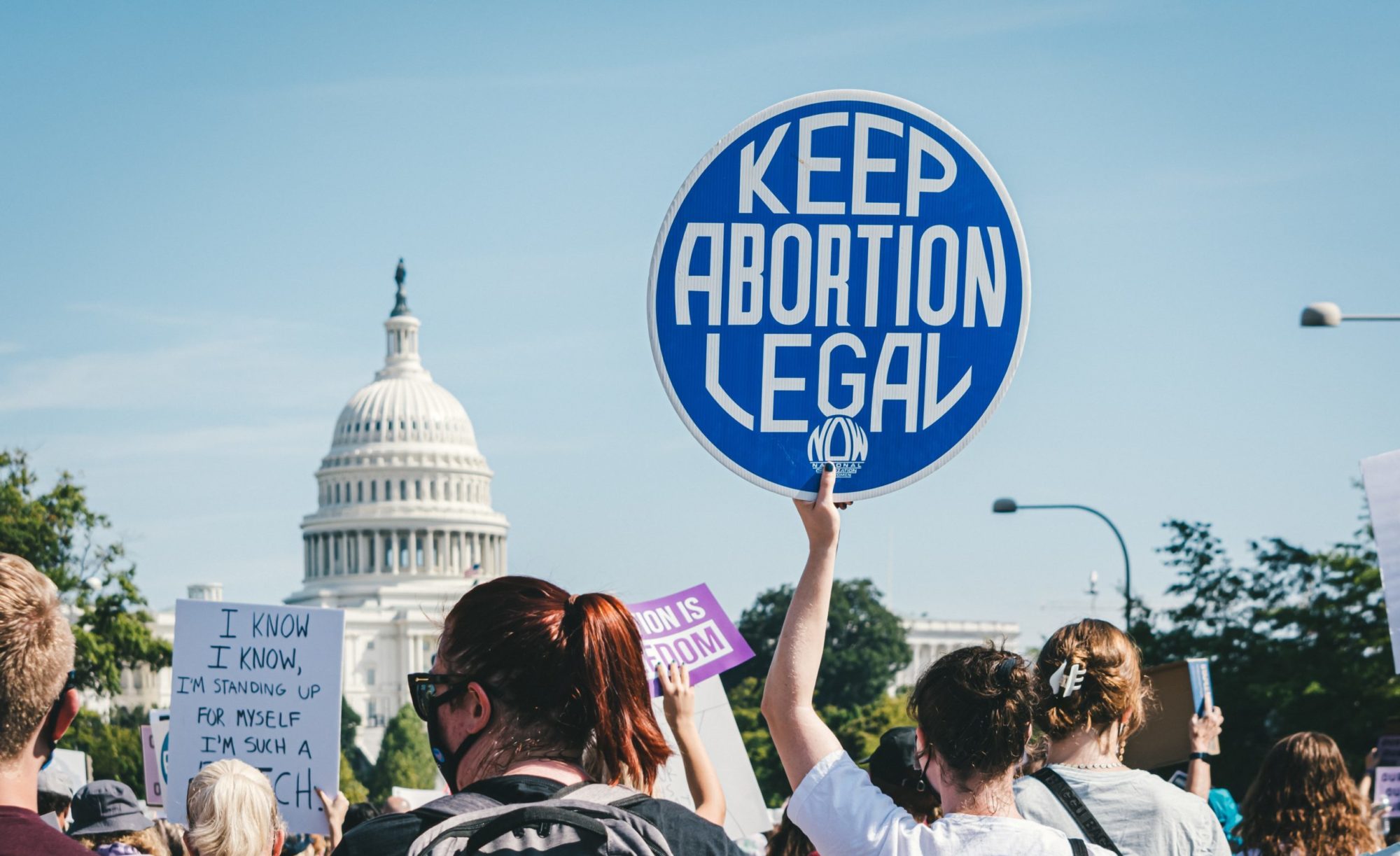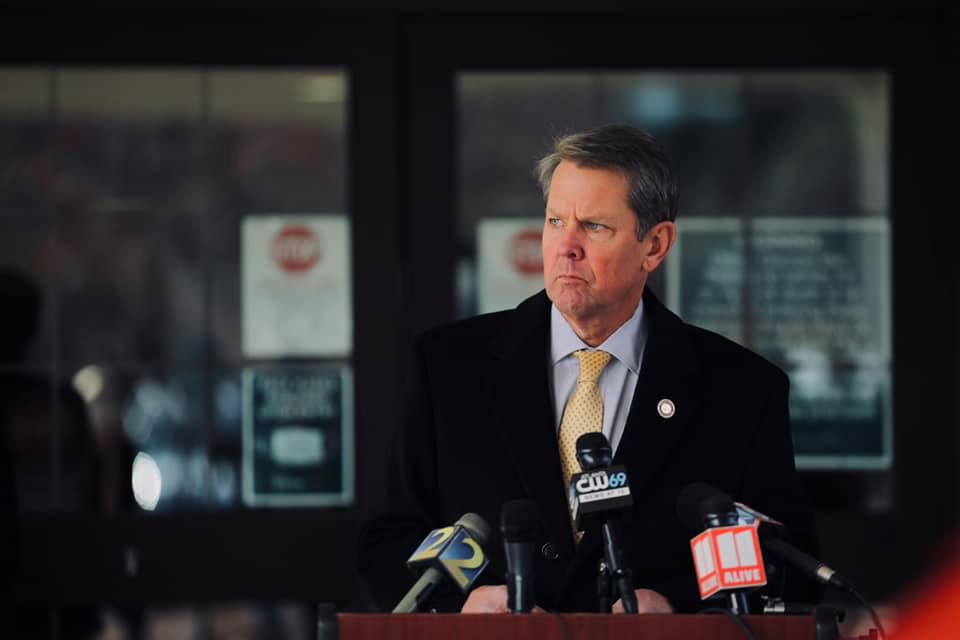Florida Governor Suspends Tampa Prosecutor in Latest Attack on Abortion and Trans Rights
“He’s not only stripping away our personal liberties, but he is removing those who have the guts to stand up to him,” responded a Democratic lawmaker.
| August 4, 2022

Florida Governor Ron DeSantis took the extraordinary step on Thursday of suspending the locally elected prosecutor of Hillsborough County, home to Tampa. Andrew Warren, the suspended prosecutor, promptly denounced the move as an “illegal overreach.”
The suspension of this Democratic official, announced by the Republican governor at a news conference where he was flanked by Hillsborough County’s Republican sheriff and other local officials, is the latest chapter in the GOP’s sustained attacks on reproductive rights and transgender rights in Florida, as well as broader criminal justice reform efforts.
DeSantis based the suspension on Warren’s statements that his office would not prosecute abortion-related cases and cases involving anti-transgender laws. DeSantis also mentioned Warren’s policies establishing a presumption against prosecuting certain behaviors.
DeSantis claimed that with those statements and policies Warren “neglected” his duties and “display[ed] a lack of competence” to carry out his duties.
DeSantis replaced Warren with Susan Lopez, a local judge who is a member of the conservative legal organization the Federalist Society. His decision effectively kicked the Democratic Party out of an office it won in both 2016 and 2020, in a county that DeSantis himself lost by nine percentage points in 2018.
Florida Representative Anna Eskamani, a Democrat and fierce critic of DeSantis, called the governor’s move “a fascist approach to governing, if you can even call it governing.”
“It’s not about law and order. It’s about control,” Eskamani told Bolts. “He’s not only stripping away our personal liberties, but he is removing those who have the guts to stand up to him.”
The move comes as Florida, in the wake of the U.S. Supreme Court’s decision overturning Roe v. Wade, implements its 15-week abortion ban and considers more extreme bans. It also comes as the state fights challenges in court to the law known as the “Don’t Say Gay” bill, as well as a law banning trans girls and women from girls and women’s sports. In a particularly extreme step, the DeSantis administration also has filed a complaint against a restaurant in Miami because of its drag brunch, attempting to take away the business’s liquor license.
Warren had also pledged to not prosecute any ban on gender-affirming care for minors, though Florida does not have such a ban right now.
Warren’s statement on Thursday suggested he would be fighting back, although Warren himself declined to comment to Bolts and an adviser did not respond to a question asking if Warren planned to challenge the suspension.
“Today’s political stunt is an illegal overreach that continues a dangerous pattern by Ron DeSantis of using his office to further his own political ambition,” Warren said in the statement. “It spits in the face of the voters of Hillsborough County who have twice elected me to serve them, not Ron DeSantis.”
The move from DeSantis represents the most aggressive action yet from opponents of criminal legal reform efforts to derail the ambitions of local prosecutors elected on promises to reform the system and reduce incarceration.
“We don’t elect people in one part of the state to have veto power over what the entire state decides on these important issues,” DeSantis said at the press conference.
“Andrew Warren has put himself, publicly, above the law,” he added, citing concerns about “individual prosecutors nullify[ing] laws that were enacted by the people’s representatives.” He compared Warren to reform-minded prosecutors elected in California. “We are not going to allow this pathogen that’s been around the country of ignoring the law, we are not going to let that get a foothold here in the state of Florida,” DeSantis said.
But Aramis Ayala, a former state attorney who has faced her own attacks from DeSantis, called the governor’s move “the latest assault on Floridians’ fundamental rights and freedoms.”
“The rapid slide towards autocracy when it suits their political agenda is dangerous, appalling, and incredibly concerning,” Ayala, a Democrat who is now running for attorney general, said in a statement she shared with Bolts.
Ayala announced shortly after becoming the chief prosecutor in the district that includes Orlando in 2016 that she would not bring capital prosecutions and declined to do so in a specific case. Republican Governor Rick Scott countered by reassigning the prosecution to another state attorney. Although Ayala challenged the move, the state’s Supreme Court eventually upheld the governor’s authority to reassign death-eligible cases under her jurisdiction in a 5-2 decision in 2017.
On Thursday, DeSantis went much further, immediately suspending Warren from his office.
Ayala on Thursday denounced the new move as antidemocratic. Warren “was elected and entrusted by the people—not once but twice—and it is the job of the elected state attorney to exercise prosecutorial discretion in the community they serve,” she said. “The suggestion that there was malfeasance or a dereliction of duty by the Hillsborough State Attorney Office is a dictatorial response and attack on the constitutionally protected right of free speech.”
Republicans elsewhere in the country have mounted parallel efforts to sideline prosecutors who promote criminal justice reform, though none has yet to go as far as DeSantis’s move on Thursday. Many governors do not have the power to unilaterally suspend local officials.
Pennsylvania Republicans have sought impeachment proceedings against Philadelphia District Attorney Larry Krasner, a progressive who easily won re-election last year; one Republican this year even ran for governor on a platform of ending DA elections in Philadelphia and nowhere else in the state. Lee Zeldin, the Republican nominee for governor in New York, is promising to take action against Manhattan DA Alvin Bragg, who has like Warren set presumptions of not prosecuting some lower-level crimes.
The Supreme Court’s Dobbs decision is likely to dramatically increase these clashes between the anti-abortion Republican politicians who run the state government in red states and Democratic officials who often govern urban areas in those states. Dozens of prosecutors in states like Arizona, Michigan, Texas, and Wisconsin, have said they will not enforce abortion bans, and some Republicans have signaled that they are looking for workarounds specific to their state like having the attorney general step in.
In Florida, DeSantis’s executive order asserted that he has the authority to suspend Warren under Article 4, Section 7, of the state’s constitution, which sets out the governor’s authority for suspensions over issues like “neglect of duty.” DeSantis also used the provision in 2019 to suspend the Broward County sheriff from office, using the same claims of neglect of duty and incompetence. There, however, DeSantis acted shortly after a report was issued on the 2018 mass shooting at Marjory Stoneman Douglas High School where 17 students were killed. DeSantis’s decision to suspend the sheriff was based on that report’s conclusions about the training and preparation of law enforcement under the sheriff’s command, and it was upheld by the Florida Supreme Court.
But the broad move by DeSantis against Warren included no such report underlying it. It also made no mention of any cases that DeSantis objects to. The governor’s executive order instituting the suspension only mentions the prosecutor’s “public proclamations of non-enforcement.” These issues are certain to come up in any challenge to the suspension.
DeSantis’s claim that the announcement of a declination policy constitutes a failure of duty that fits under the state constitution rules may also come under scrutiny.
Earlier this year, a conservative state Senator in Florida championed a bill this year that would have authorized the governor to suspend a local prosecutor who announces a blanket policy of not declining certain cases. The bill provided “that a state attorney adopting certain blanket policies constitutes a failure to execute his or her duty.” That bill did not pass the legislature, dying in the state Senate. Still, DeSantis interpreted Warren’s blanket policies as a neglect of duty in his announcement today.
Eskamani highlighted the hypocrisy of DeSantis suspending Warren because of steps he’s taken not to enforce certain laws, saying, ”this is the same governor who’s told school districts to ignore federal Title IX guidelines, especially on LGBTQ+ care and discrimination.”
Miriam Krinsky, executive director of Fair and Just Prosecution, the organization behind nationwide prosecutors’ joint statements on transgender rights and abortion rights that DeSantis cited in his order, pointed out that many prosecutors, including some conservatives, choose to not charge certain misdemeanors, a practice DeSantis assailed today. “There’s a potential for a legal challenge over the erosion of voter choice,” she told Bolts.
Ayala echoed that point in her statement. “Since when does the governor have veto power over the people’s choice?”




